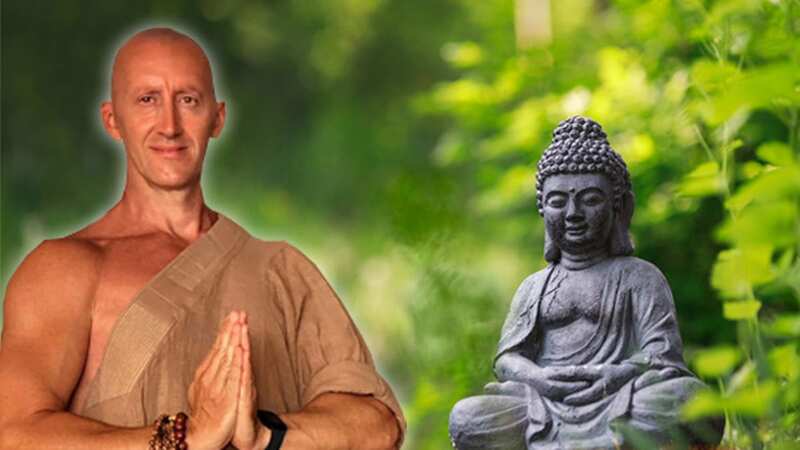Beat stress the Shaolin Monk way - five simple ways to start feeling better

With Google seeing searches for 'reduce work stress' jumping by 356 per cent in the past week alone, it's safe to say that feeling burned out is a pretty common problem these days.
While we inevitably find ourselves looking to outside sources for the peace of mind we crave, this rarely - if ever - brings us the sense of calm we're after. There is a famous quote from Gautama Buddha: 'Peace comes from within. Do not seek it without'
As the Elevate Society says: "This profound quote encapsulates a timeless wisdom that emphasises the intrinsic nature of peace. It directs our attention inward, suggesting that the true source of peace lies within ourselves rather than in external circumstances or material possessions. The message here is clear: we should not frantically search for peace in the external world because it cannot be found there. Instead, peace is a state of mind and being that we must cultivate from within".
To help you realise this, we have five easy-to-follow and execute strategies courtesy of Shi Xing Mi (Walter Gjergja) — a Shaolin secular monk of the 32nd generation, co-founder and chief wellness officer at AI-powered personal trainer app Zing Coach. The key is to not rush anything and instead focus on working through this list as methodically and diligently as you can:
Rise, shine, and walk
The ‘Hot Girl Walk’ isn’t blowing up on TikTok for nothing — though you don’t necessarily need to walk four miles every morning. Even a quick 15-minute stroll is a powerful stress reliever, triggering the release of endorphins and regulating cortisol to keep your hormones in check and your mind healthy.
 Walking tracker one of 12 apps banned by Google as users urged to delete them
Walking tracker one of 12 apps banned by Google as users urged to delete them
All the while, physical activity gets the blood pumping, ensuring your organs receive all the oxygen and nutrients they need to deal with all that pent-up stress. But don’t be tempted to jump on a treadmill during the colder months. A daily dose of natural light will regulate your circadian rhythm, keep your neurotransmitters and hormones in balance, and boost your mood by stimulating vitamin D production.
Exercise mindfully
Exercise can help you to relax, but you must be mindful of quantity and quality. Intense, prolonged aerobic exercise can temporarily increase the stress hormone cortisol. Choose workouts that offer plenty of movement but of a relatively moderate intensity.
You can’t go wrong with a brisk walk (or a very gentle jog if you are already reasonably fit), the flowing movements and conscious breathing of yoga, or a slow and controlled tai chi routine. Cycling and swimming can also offer a calming workout — but don’t go all out trying to beat your personal record.
If you can't see the poll, click here
Spend time in nature
Spending just 120 minutes a week in the fresh air can reduce stress levels by at least 30 per cent, so eating your lunch in a park might be all you need to get you through a difficult day at the office. Spending time in nature promotes relaxation and enhances your mood by increasing serotonin production. Plus, being outdoors encourages you to exercise and reduces negative feelings, so it’s great for both your mind and your body.
Eat well and drink plenty
When we’re stressed, we snack — and not on the healthy stuff. Our comfort foods tend to be high in refined sugars and unhealthy fats, which offer temporary pleasure but actually increase our stress levels over time. Foods high in sugar and processed carbohydrates cause blood sugar spikes, which trigger the release of stress hormones.
The same goes for drinking copious amounts of caffeine. For your mental well-being, stick to water and opt for a balanced and nutritious diet, no matter how tempting coffee and candy may be: the very short-term comfort will inevitably be followed by feeling even worse.
Put the phone down
Scrolling through social media may get the dopamine flowing, but the constant exposure to curated, often idealised content will eventually lead to social comparison and feelings of inadequacy, raising your stress levels every time you refresh the feed. Add the relentless stream of notifications, and your brain is bound to experience information overload.
The digital world does have its perks — connection, community, and education — but you need to turn the tech off now and then, especially when you’re getting ready to turn in for the night. The blue light from screens disrupts our circadian rhythm and affects our ability to fall asleep, and the irritability that comes with fatigue will do little to improve your state of mind.
Read more similar news:
Comments:
comments powered by Disqus

































